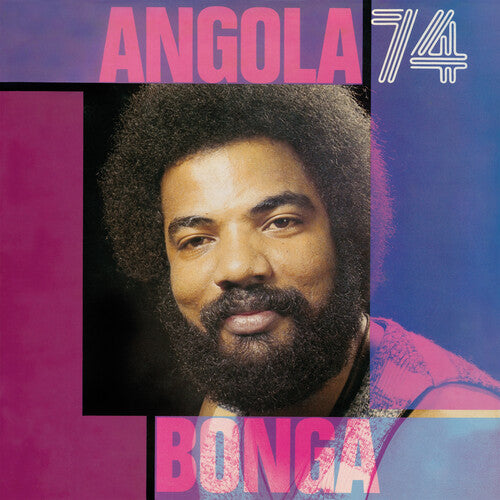
Bonga: Angola 74 - VINYL LP
Wanting to order from us over the holiday period but need some more information. We are here to help! Please see our Christmas Shipping page for more information.
On average, orders containing available-to-ship items are processed and dispatched within 1-2 business days, although this is not guaranteed.
Orders containing preorder items will ship as 1 fulfillment once all items in the order are available to ship.
Please note, Tower Records Merchandise and Exclusives are dispatched separately. On average, these items take 3-4 business days to dispatch, although this is not guaranteed.
The estimated shipping times that are displayed at checkout are from the point of dispatch.
See our shipping policy for more information.
We have a 30-day return policy, which means you have 30 days after receiving your item(s) to make a return.
For orders created between 11/17/2025 and 12/31/2025, we have extended our normal return period. For orders made between this period, customers have up to 60 days from the receipt of goods to return an item. Please see our Christmas Returns page for more information.
To be eligible for a return of an unwanted item, your item must be in the same condition that you received it and in its original packaging.
In the unfortunate situation that a product is damaged/faulty/incorrect, let us know and we will endeavor to correct any issue as soon as possible.
Please see our refund policy for more information.
Artist: Bonga
Label: Lusafrica France
Product Type: VINYL LP
UPC: 3567257625914
Genre: International
Release Date: 2018-04-06
Number of Discs: 1
José Adelino Barcelo de Carvalho was born in Kipiri in 1953. When he was still a child, his family moved to a district in the north of the city of Luanda. Formerly a fortress built in 1576, the capital of Angola was still a Portuguese colony at the time. In his youth, before José changed his colonial name to the more Angolan Bonga Kuenda, he lived in the city's poorer quarters, called musseques - meaning "built with sand" in Kimbundu, one of the country's main languages. In the mid Fifties, Africa was beginning to rebel against colonial domination. Seventy years after the Berlin Conference, where the European powers divided up the continent between them, liberation movements were gathering momentum. Both peaceful negotiations and armed resistance heralded the end of colonization and the independence of different nations that followed in the next decade. Under the dictator Salazar, Portugal was one of the more intractable colonial powers. It decided to try and crush the green shoots of independence in Angola, where there were frequent rural revolts - especially in the northern bush. In the musseques surrounding Luanda, there was much talk of armed struggle against the colonial troops. A climate of general unrest reigned in Ilha de Cabo, Barrio Operario and Sambizanga, where the Caribbean filmmaker Sara Maldoror shot one of the finest records of decolonization ever made. In the white districts, European administrators went about their everyday business with a few asimilados - privileged Angolans who had embraced the culture, language and religion of the colonists. But in the suburbs, poets, novelists and artists led the resistance movement. They studied the history of their country and were inspired by stories of their ancestor N'Gola Kiluanje, King of N'Dongo, who fought the Portuguese army for many years back in the sixteenth century.
Tracks:
1.1 Venda Poro (7:05)
1.2 Kubangela (3:48)
1.3 Ma Kongo (6:19)
1.4 Roots (3:40)
1.5 Ghinawa (5:18)
1.6 Sodade (6:30)
1.7 Marika (5:57)
1.8 Ngana Ngonga (3:06)
1.9 Ai-Ue Mama (3:49)
1.10 Kinga Kueta (4:27)


